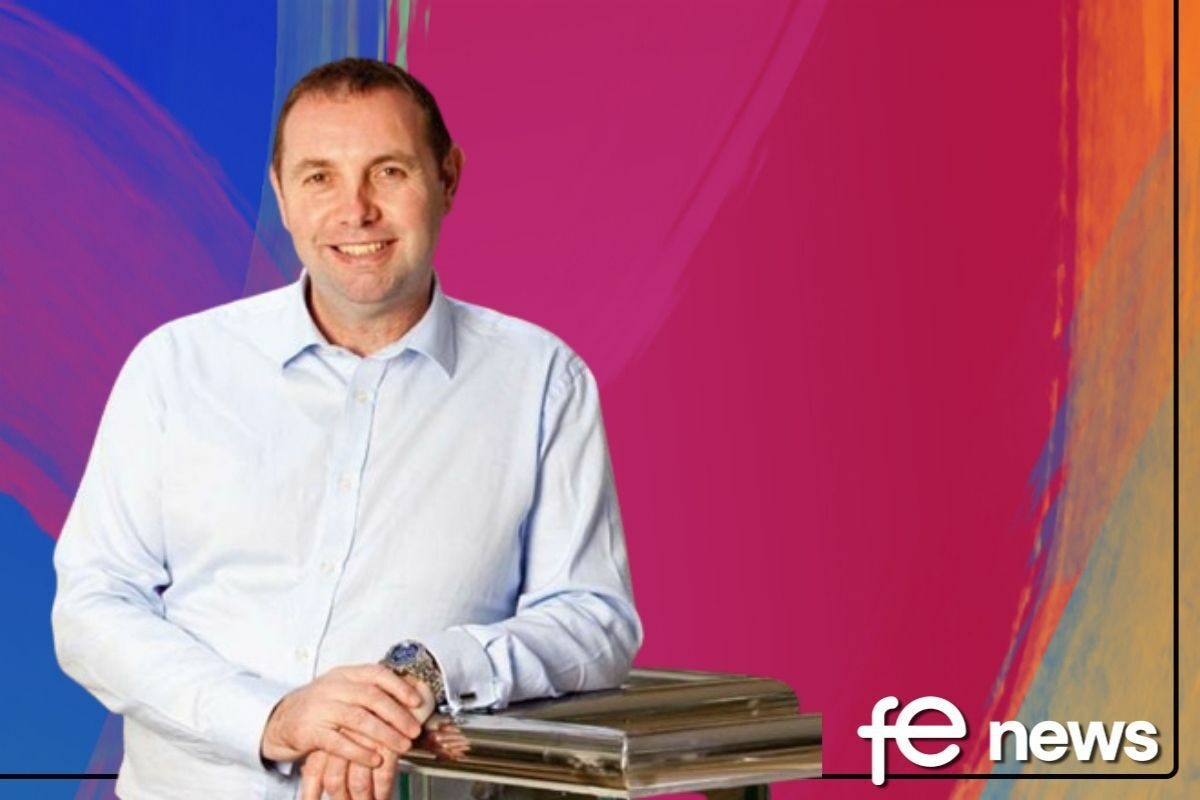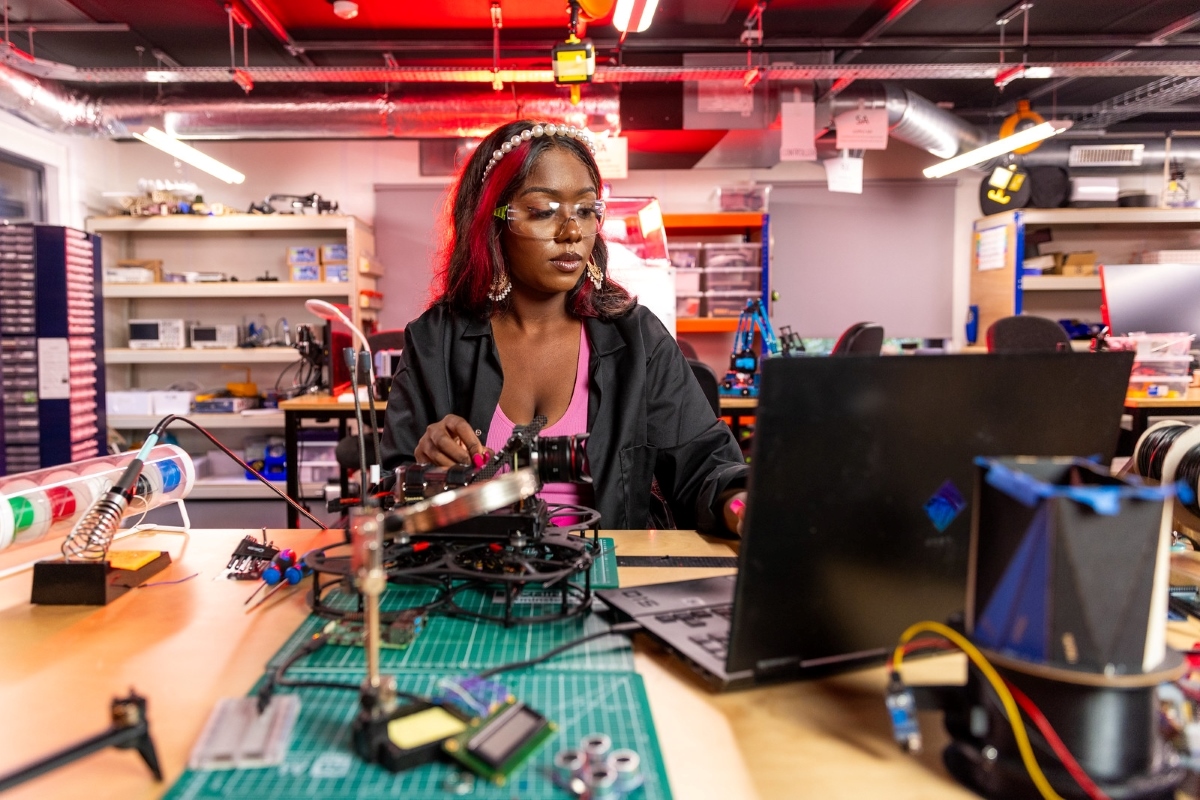The younger generation is paving the way in political activism: how do we help their voices be heard?

Trust in government is at an all-time low, with a recent survey from Edelman UK finding that almost half of adults (48%) view the government as a divisive force in society.
This has been fuelled by the unforeseen issues which have caused ongoing ramifications over the last few years, but with this in mind, where do our young people stand in all of this?
For over 40 years, the average age of a UK Member of Parliament has consistently remained at 50 years. These are the people that are supposed to shape our society and be the voice for our societal concerns – shouldn’t they be listening to the generation that is going to succeed them?
Young people have concerns just like their adult counterparts but have less opportunity or encouragement to be heard. We have to do more to ensure they have an equal share in the input of democracy.
But, how can we help our younger generation not only feel heard but encouraged to talk about issues that affect them and on the wider political issues that impact us all?
Youth Engagement
There is an assumption that young people are not engaged in political and social discourse, or that they are too young to truly understand societal issues, making their thoughts less important. This could not be further from the truth.
The fact of the matter is, our younger generation is paving the way in highlighting concerns within our society, and bringing awareness to issues on an international level, so why are we not making more effort to ensure they are heard?
Every year the British Youth Council gives all young people aged 11-18 years the chance to comment on what they believe to be the biggest issues both their generation and the UK are facing right now. Knife crime continues to be a concern, as well as the climate emergency, which was at the top of the list for the last three years. In 2022 however, coming out of COVID into a ‘new world’, our young people voted that mental health and job opportunities were the top concerns that needed to be prioritised.
And how right they are. Research has found that one in six children suffer from mental health issues in the UK, and with the economy still rocky from the pandemic, our young people are right to be apprehensive about what the future holds for them.
As you can see, the assumption of disengagement is largely false. This survey had almost half a million voluntary youth participants, demonstrating that the younger generation is not at all disengaged with politics, they are disengaged with a system that doesn’t seem to be serving them.
Look at the recent issues across the world and you will see our young people paving the way to bring awareness and cause disruption. From the rise of Greta Thunberg and the School Strike for Climate to the USA youth strike March for Our Lives against gun violence, to the free period products in schools held by the then 17-year-old Amika George.
The younger generation is taking action, but unfortunately, it’s only the select few that are being heard by the masses despite group efforts to be heard.
Stop declaring youth disengagement in the political system
Our younger generation feels let down. Youth Services in the UK have been cut by 71%, or almost a billion pounds, since 2010. What’s more is that in the setting of a pandemic, where people are already isolated, you can understand why our younger generations may not feel like they are being heard by politicians.
It’s clear to see the younger generation is well versed in issues that need to be addressed. The problem lies in them not having anywhere but the streets to voice their concerns. And don’t get me wrong, protesting and rallies are powerful tools, but we need to ensure these voices can be heard by the people at the top who can really make the change.
Furthermore, with systematic disengagement among youths, as well as a rise in polarization, we need to be encouraging the younger generation to continue engaging with the political system, not pushing them away from it.
This isn’t about just providing a voice to young people, because to suggest they do not already have one is patronising. What we need to do as a nation is empower young people to critically engage with the democratic process and feel empowered to make their voices heard.
To do so successfully and encourage everyone to engage in political and societal issues, more funding needs to be put back into youth services to tackle the issue that young people are quickly becoming disenfranchised.
Youth Services are imperative
Access to youth services has diminished rapidly, and many children and teenagers do not have access to a wider support system of adults and peers outside of their immediate family or school. How can young people expect to have their voices heard if there is nowhere for them to voice them?
Schools provide a place for children to receive support from adult role models which is incredibly beneficial, but the fact of the matter is children spend just as much time out of school, as they do in – meaning they need alternative places to go that offer a safe space for them to experiment, learn and grow.
In the context of getting their voices heard by those at the top, how do youth services come into play? Whilst you may not think places like youth clubs and services are the go-to place for teens to voice their opinions on matters to change their community, it is exactly these settings that provide a positive platform for opinions to be expressed.
There’s also the fact that educational settings only allow young people to absorb the information they are taught through lessons and from their peers. A large part of giving our young people a voice is about enabling them to develop one; their own. We must encourage the younger generation to develop critical thinking skills to further develop their own viewpoints and opinions. With instant access to information and opinions through social media, it’s all too easy for not only children, but all of us, to absorb footage and information at face value without evaluating other perspectives or external factors.
Youth services offer both a space and a platform to help young people engage with differing opinions and learn how to interact with the mass influx of online information and how to develop personal standpoints around that.
When you work with young people regularly, you understand that teaching young people the importance of building and maintaining positive relationships is at the centre of everything.
Theory of Change
The Theory of Change is a relationship model which encapsulates the importance of young people learning to build positive relationships, and how that begins with forming a good relationship with themselves.
The first step is personal and is about how youth services should support young people to build positive relationships with themselves in order to build both self-awareness and self-esteem. In this context, it helps children understand what issues they feel strongly about, supporting them to understand that they can voice their concerns.
The second step is interpersonal and seeks to equip children with the right skills to empathise and communicate well with those around them. This means that children need a place where they can safely engage with others, whether they have differing opinions or not and understand that their own thoughts are just as valid as someone else’s.
Advocacy is the next step and is about helping children to feel encouraged to help those around them by consciously engaging with others and understanding other people’s experiences.
The final step is a culmination of the previous and is about community. Children need a sense of belonging and purpose. They must have space within their communities where they are given the opportunity to play a vital role in creating and cultivating a vibrant wider community.
I believe this model is imperative in helping us to understand not only the importance of relationship-building in youths but how building self-esteem, self-awareness and empathy can help children use their voices for good, to make changes within their community and beyond. But we can still do more to make their voices heard.
Empowering young voices is the foundation
Our younger generation must not be underestimated. The assumption they are disengaged from societal issues is completely false, what they need is real support in getting their voices heard in the right places. And this is just the foundation.
Igniting the younger generation to feel engaged in our political system is a step in securing our democratic rights, and exercising our civil responsibility in ensuring that perspectives are provided from all walks of life.
Statistically speaking, the over 75’s are those who are most likely to vote in elections, with the 18 to 24-year-old bracket being the least. This is evidential of exactly what I’m saying, we need to level out the field and push engagement across all age groups.
But the fact of the matter is, if we start prioritising empowering our youth to engage in community issues, that engagement will progress with them into adulthood, creating a society of people willing to engage in our democratic processes. After all, democracy works at its best when everyone is participating.
To help them do this, we must start on a community level. Using the model above to empower our children to voice their concerns among their peers and learn to discuss and debate issues with familiar faces and trusted role models is a great starting point.
Once their awareness and confidence are built, we mustn’t limit their reach. It is important for us, as people who work with young people and may have external connections to help bridge the gap. Whether that’s helping set up a meeting with a local MP, or organising events in Westminster, as adults responsible for children, getting their voices heard is easy once we begin to build momentum.
We need to put the trust in our younger generation and help them voice their legitimate concerns before we face a whole generation that is disengaged from the systems in which we live.
The younger generation must have their voices heard, and we must empower them to know their opinions on societal issues matters, but we must also be helping them create momentum as well as providing opportunities and platforms specifically to get their voices heard.
I know trust is low in adults in government as it is, but we know that getting our voice heard matters, why are young voices any different?
By Paul Oginsky, CEO at Vibe











Responses